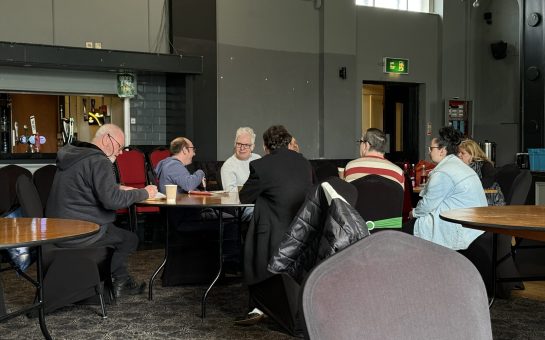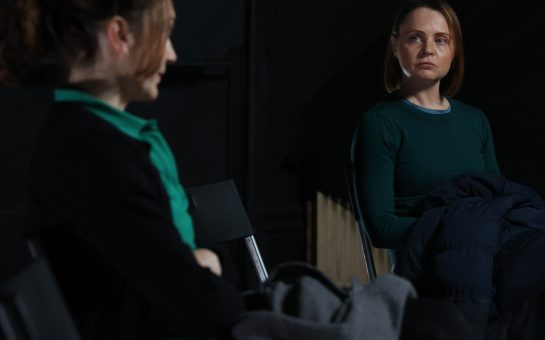Protesters are campaigning against the University of Manchester’s decision to close one of the UK’s leading courses on disability.
Leaders of the Save Learning Disability Studies (LDS) Campaign have criticised the University’s decision to end their innovative undergraduate learning disabilities studies course next year.
Protestors say the course, which uniquely allows for self-advocates to design the syllabus, is an important and highly innovative way of delivering information on disability.
A spokesman for the campaign said: “While there are several ‘disability studies’ courses in the UK, the course at Manchester is the only one that focusses particularly on the experience of people with labels of learning disability, their position in society and in the disability movement. ”
On Friday students on the learning disabilities studies course erected a banner outside the University of Manchester’s Whitworth Hall on the Oxford Road, to protest against the decision which was taken without consulting either the students or the University’s Learning Disabilities Studies Partnership Steering Group (PSG).
Max Neil is on the postgraduate LDS course and is on the Lancashire Board Member for the Learning Community for Person Centred Practices, which supports disability training and champions the LDS campaign as well as workin in the disability service for twenty years
He said: “I know that the LDS course is widely admired across the sector. It’s also unique as most DS courses look at disability more generically than the specific exclusion of people with disabilities.”
The University of Manchester have stated that the low uptake to the course, which currently only has 15 students on it, was behind their decision, taken in August.
A University spokesman said: “In recent years, we have faced a shortfall in the numbers of students that we have been able to recruit to the BA Learning Disability Studies programme at the standard we expect.
“Despite efforts to address this, we do not believe that we will be able to recruit sufficient students in the future to make this programme sustainable or to maintain the quality of the programme.”
Protestors state that recent scandals like those at the Winterborne and Vielstone Care Homes, where care workers were arrested for abusing disabled patients, have highlighted the need for self-advocacy for people with disabilities.
Similarly, Mencap’s ‘Death by Indifference’ report, revealing that hospital blunders, poorly trained staff and indifference were to blame for the avoidable deaths of disabled patients over the past decade has reinforced the need for the sort of training which the University of Manchester course promotes.
Mr Neill said: “These events and reports show that there are plenty of issues to study in relation to self-advocacy.
“The disability sector could benefit from graduates of programs like this one which are based on respect, person-centred practices and which involve learning self-advocates in designing the syllabus.”
Mr Neill has also expressed concern that the postgraduate program would be sustainable without the undergraduate program.
For now, the University of Manchester have reiterated their dedication to the current intake of students.
A University spokesman stated: “We will continue to support our students to ensure they receive the high quality programme and standard of teaching they expect, up to the end of the course in three years’ time.”
The campaigners have set up a petition to keep the course which supporters can access online at: http://lds2013.epetitions.net/#stay
Image courtesy of WE IS, with thanks
For more on this story and many others, follow Mancunian Matters on Twitter and Facebook.



